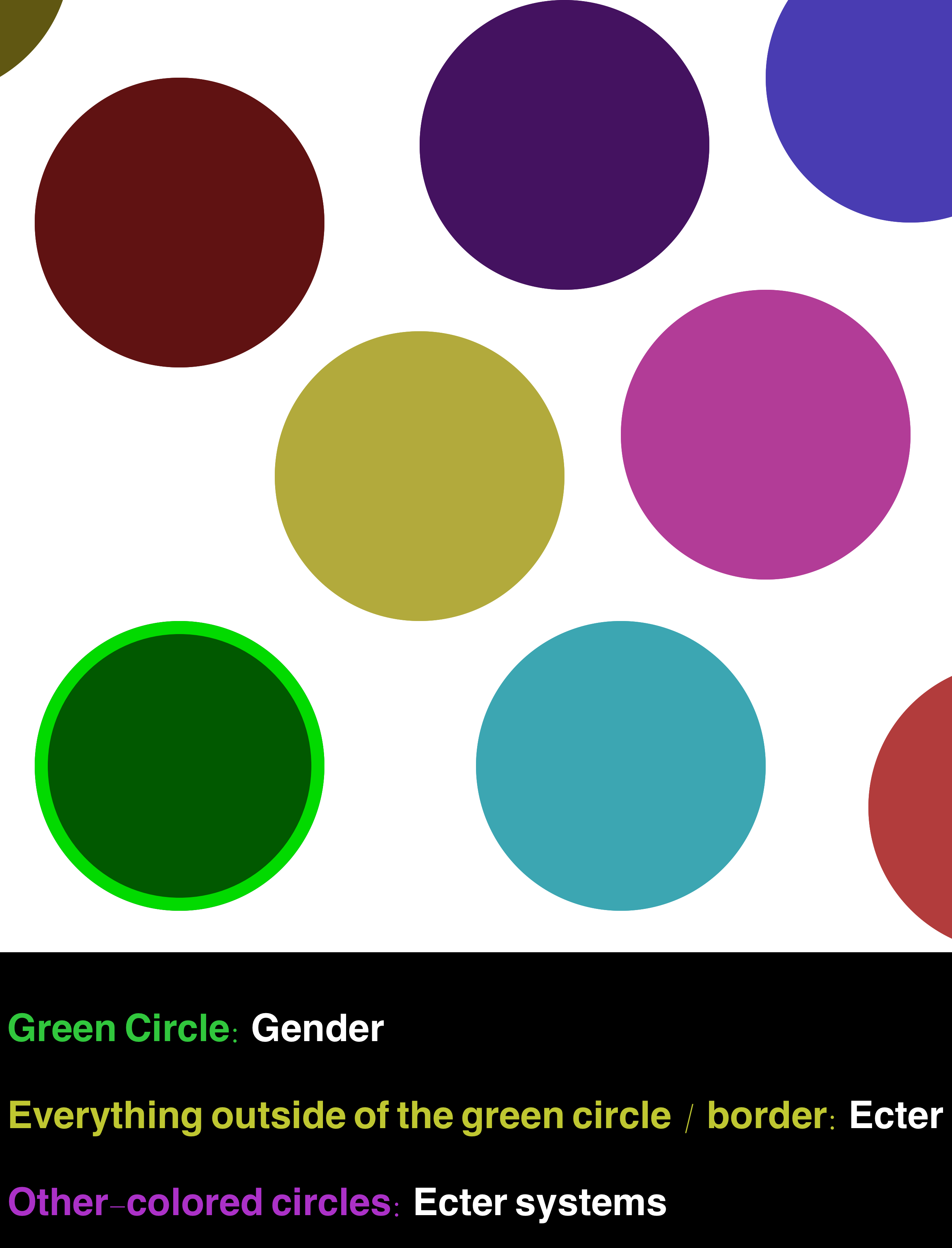
Ecter Identity / Menre
Ecter Identity, also called Menre, refers to identities and identity systems that are outside the boundaries of "gender" entirely. It's comparable to something like nonbinary is for the gender binary, except it is outside of gender itself. It's an astronomically large umbrella term that can contain countless identification systems and unique experiences, each one capable of being just as varied and expansive as gender identity is. Someone may also just have a general ecter, not one in a defined separate system.
This can be a really difficult concept to understand. It opens the door to the idea that gender itself can have a vast realm of identity outside of it, while still filling a somewhat similar niche. Some ecters might feel similar in concept to gender identity, while others might be entirely different in a variety of ways, with no similarities to how gender is perceived or experienced.
Ecter comes from ect- which means outside, and -er, the same ending as gender. Broadly, this translates to "outside [of] gender." Menre, meanwhile, is taken from genre, and should be pronounced similarly (mahn-rah, not mehn-rey.) Ecter is intentionally meant to sound somewhat similar to gender, while menre is meant to be more general. Ecter can and should be used the same was gender is, conjugation-wise; ie, ecter identity, ecters, ectered, and so on.
Ecter Systems
Ecter Systems refers to specific umbrellas within their own bubble, often with their own "rules," identification, and experiences.
The best way of making this make sense is to imagine a separate society from humankind. They're a species with their own classification of identity that's seperate from gender. There are a different series of experiences commonly associated with them, and the way it works for them might be very different from gender identity. These individuals would have ecters- and, crucially, the specific term they give to their specific set of identity (let's say they call it "milliah," or something) would be an ecter system.
Another way of thinking about it is galaxies. "Gender" is our Milky Way, and everything outside of it is "Ecter." Different galaxies, like Andromeda, are ecter systems, having its own orbit and different star / planet / etc. systems. Some ecters, like rogue planets, float around freely in space, not tied to any galaxy at all.
Ecter identities do not need to be in an ecter system in order to exist; plenty of them can be on their own, independently and not in any kind of system, sort of like how some people just use "nonbinary" or "queer" without any further specification.
Important to note that two ecter systems are usually just as seperate from each other as ecters and genders, besides the fact that neither one is gender. No two ecters have to be alike, and ecter systems are not all universally connected to each other. Going back to the space analogy, being in one "galaxy" does not mean you're connected to all the others. You can make ecter systems that are tied to each other, but unless explicitly stated, you should assume that they're independent to themselves.
To try to better illustrate this if it's still too difficult, I made a really crappy graph to visualize it:

Return To Archive